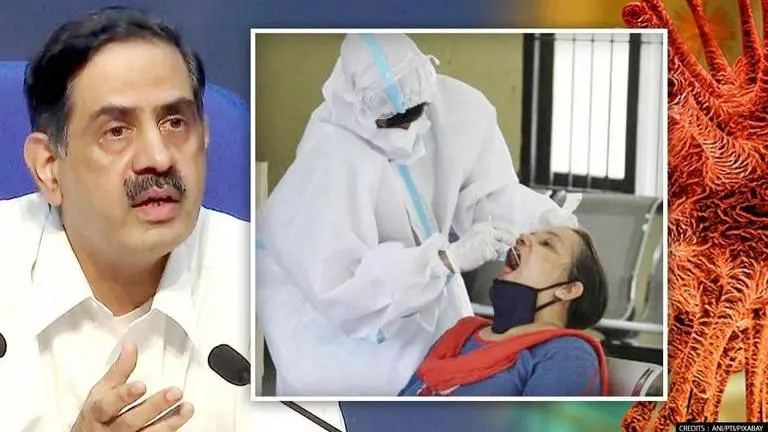Updated 8 June 2021 at 11:46 IST
India detects new COVID-19 variant from Brazil & UK returnees; here's more on B.1.1.28.2
Even as India continues to grapple with the novel coronavirus crisis, the National Institute of Virology has detected a new COVID-19 variant in India-B.1.128.2.
- India News
- 3 min read

Even as India continues to grapple with the novel coronavirus crisis, the National Institute of Virology, Pune, has detected a new COVID-19 variant in India- B.1.1.28.2. This was revealed in a study conducted by 13 scientists including ICMR Director-General Dr Balram Bhargava which is yet to be published and peer-reviewed. Isolated from the nasal/throat swabs of international travellers returning to India from the United Kingdom and Brazil, the strain's pathogenicity was demonstrated in the Syrian hamster model and compared with the B.1 variant. The clinical samples of two COVID-19 patients who do not have any co-morbidities and remained asymptomatic until their recovery were used for this purpose.
The experiment was performed with the approval of the Institutional Animal Ethics Committee and as per the guidelines of the Committee for the Purpose of Control and Supervision of Experiments on Animals. The B.1 and B.1.1.28.2 variants were injected into two separate groups of 9 Syrian hamsters who were observed for 7 days. Thereafter, three hamsters each were sacrificed on day 3, 5 and 7 to study the viral load, antibody response and lung pathology.
The study revealed that the new variant induced body weight loss, viral replication in the respiratory tract and severe lung pathology in infected Syrian hamsters. Found more pathogenic than B.1, the B.1.1.28.2 strain is likely to cause severe symptoms. Observing that increased disease severity and neutralization reduction are of great concern, the scientists highlighted the need for screening the COVID-19 vaccines for efficacy against this variant.
Stressing on the importance of genome sequencing, the study stated, "This would help in implementation of various control measures to curb the transmission of SARS-CoV-2 variants in the country. It would also allow quick assessment of their prevalence across the globe. With the research underway to determine the neutralization potential of currently available COVID-19 vaccine, we still need to continue to follow the non-pharmaceutical interventions such as use of masks, physical distancing, hand hygiene and avoiding the public gatherings which would check the transmission of these new variants to a great extent."
Coronavirus situation in India
At present, there are 14,01,609 active novel coronavirus cases in India while 2,71,59,180 patients have been discharged and 3,49,186 deaths have been reported. While the country has shown a considerable dip in daily cases indicating that the second wave is on the wane, the vaccination drive was adversely affected since May 1 owing to a shortage of doses and the decentralized vaccine procurement policy. Addressing the nation on Monday, PM Modi rolled back this policy and announced that the Centre will procure 75% of the vaccine stock and distribute it to the states for free from June 21.
Most importantly, this stock can now be used for all adults and not just those aged above 45. With the Union government predicting that 216 crore vaccine doses are in the pipeline, the inoculation drive is expected to get a huge impetus. A total of 18,69,92,631 persons have been inoculated in India whereas 4,51,35,641 of them have received the second dose of the vaccine too.
Advertisement
Published By : Akhil Oka
Published On: 8 June 2021 at 11:46 IST
